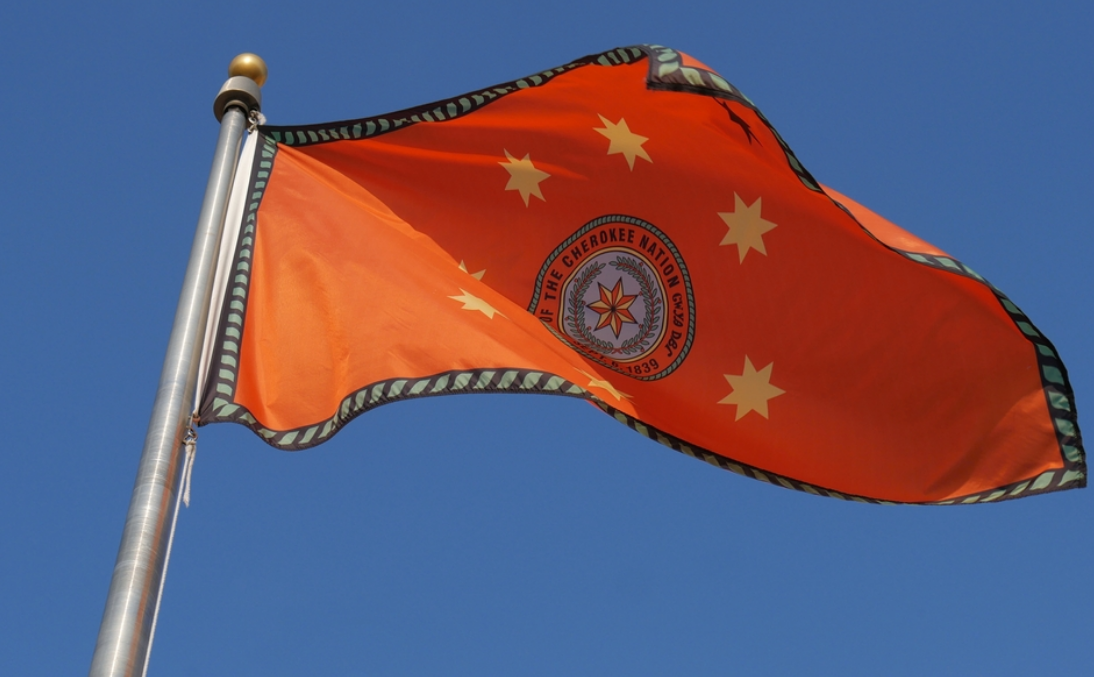
- Details
- By Chuck Hoskin Jr
Guest Opinion. A top priority throughout my administration has been holding the federal government to its promises to the Cherokee Nation. We have strongly defended our treaty rights to great effect, such as when federal courts recognized that the Cherokee Nation Reservation continues to exist, or when Congress finally held hearings on Cherokee Nation’s right to a delegate.
These high-profile issues get the most attention, but just as important is the daily work of maintaining the government-to-government relationship with the United States. One way this happens is through tribal advisory committees (TACs), where tribal leaders meet regularly with top U.S. officials on the issues most important to tribes.
Just this month, Deputy Chief Bryan Warner chaired the CDC Tribal Advisory Committee at a meeting hosted by Oneida Nation in Wisconsin, and I participated in the Health and Human Services Secretary’s Tribal Advisory Committee (HHS STAC) hosted by the Great Plains Tribal Leaders Health Board in South Dakota. In October, I will travel to Washington DC to chair the Health Resources and Services Administration (HRSA) Tribal Advisory Committee.
We participate in these meetings to advocate for the U.S. government to live up to its trust responsibilities. Tribes sacrificed our lands and our ancestors but never gave up our inherent sovereignty in this land, so the federal government has a legal and moral responsibility to us. This is the basis for Native Americans’ right to health care and tribal nations’ right to self-governance of our citizens and programs.
At the HHS STAC, I and other STAC members spoke with HHS Secretary Xavier Becerra and agency leaders about issues including improving funding for Indian health care, enacting better telehealth policies so that we can care for our citizens wherever they are, protecting and building on effective programs like the Special Diabetes Program for Indians, and much more.

We also toured Oglala Sioux tribal programs and the Wounded Knee Memorial. Just as in past TAC meetings hosted in Cherokee Nation, bringing top federal officials to Indian Country helped them to see the on-the-ground realities that they must remember when making decisions in Washington DC.
It is also another reason why Cherokee Nation and the other tribes making our homes in Oklahoma are the best friends the state has ever had. Our unique access to federal officials means that we can influence policies, cut through red tape, and bring home benefits in ways that help the entire state.
Importantly, Cherokee Nation’s engagement with the federal administration remains strong no matter who is president or which political party they belong to. The federal trust responsibility is a core constitutional principle that goes beyond party.
Of course, the United States has a long way to go to fully meet its trust responsibility. In the scope of U.S. history, the federal government trying to support our sovereignty and meet our people’s needs is a recent change. The days when they tried to suppress our culture and destroy our governments are not so far behind.
That is why we continue to engage, speak up for our people, and demand our rights. I am always proud to speak up for Cherokee Nation to the United States government. Our progress is part of why I am so hopeful for a great Cherokee century to come.
Chuck Hoskin, Jr. is the principal chief of the Cherokee Nation.
More Stories Like This
Technology Rooted in Tradition is Strengthening Cherokee NationThe Lumbee Tribe of North Carolina: #575
Tribes Do Not Need a Greenlight to Build Renewable Energy
Law Should Not Get in the Way When "Manifest-ing Destiny"
Celebrating 35 Years of Gaming Success
Help us defend tribal sovereignty.
At Native News Online, our mission is rooted in telling the stories that strengthen sovereignty and uplift Indigenous voices — not just at year’s end, but every single day.
Because of your generosity last year, we were able to keep our reporters on the ground in tribal communities, at national gatherings and in the halls of Congress — covering the issues that matter most to Indian Country: sovereignty, culture, education, health and economic opportunity.
That support sustained us through a tough year in 2025. Now, as we look to the year ahead, we need your help right now to ensure warrior journalism remains strong — reporting that defends tribal sovereignty, amplifies Native truth, and holds power accountable.
 The stakes couldn't be higher. Your support keeps Native voices heard, Native stories told and Native sovereignty defended.
The stakes couldn't be higher. Your support keeps Native voices heard, Native stories told and Native sovereignty defended.
Stand with Warrior Journalism today.
Levi Rickert (Potawatomi), Editor & Publisher

